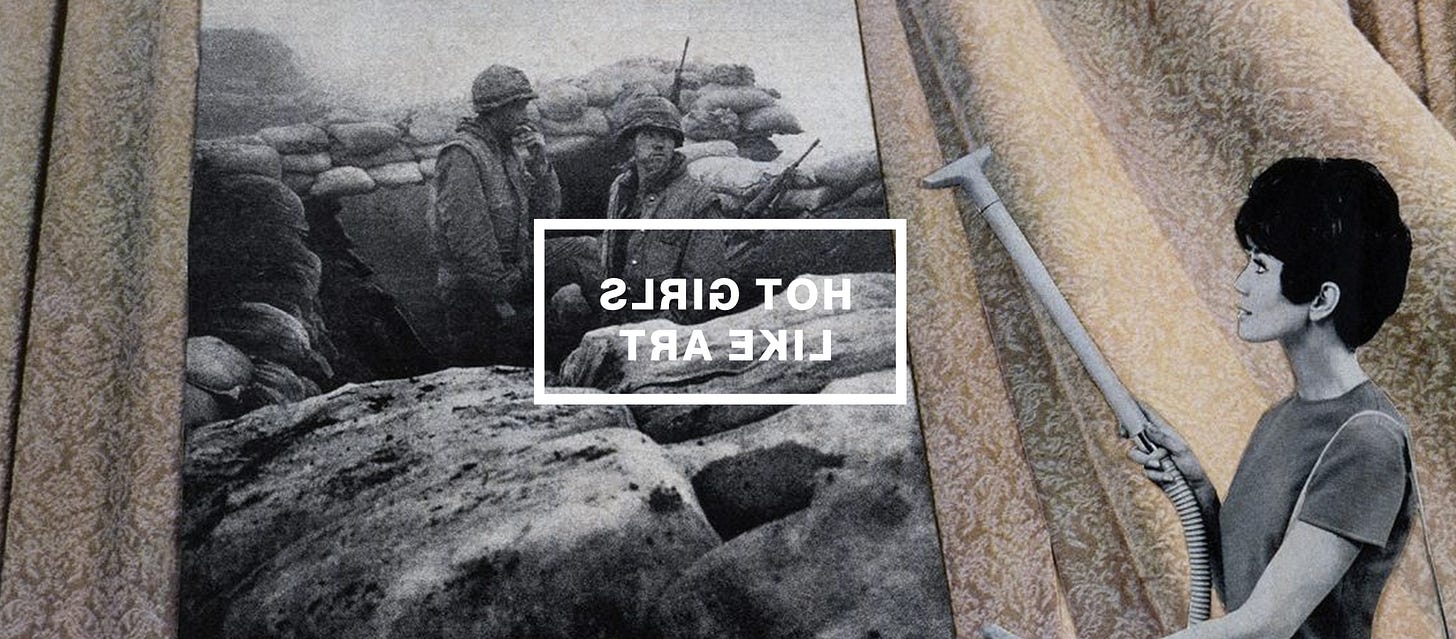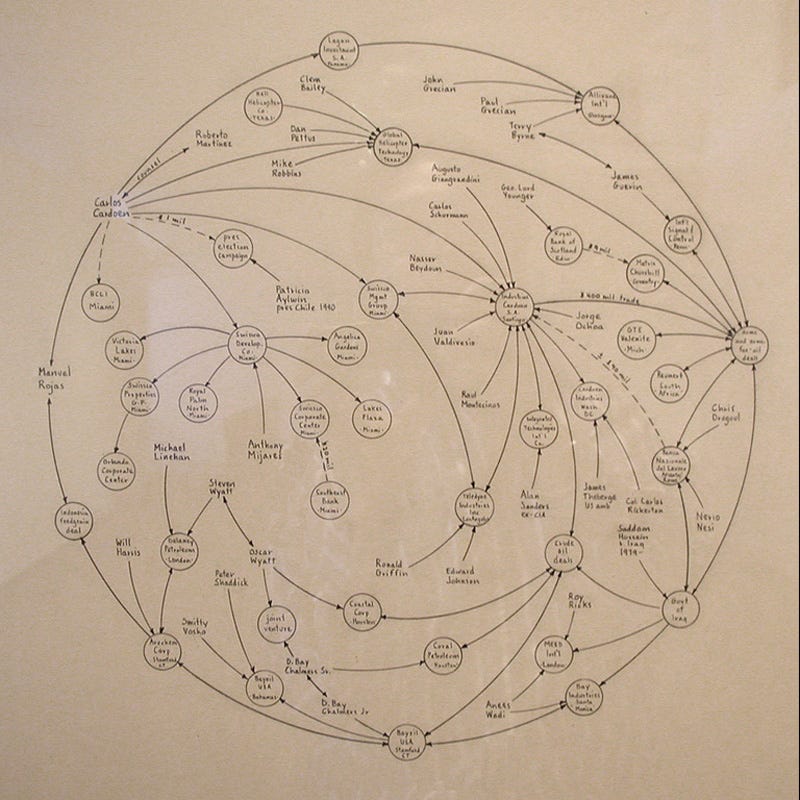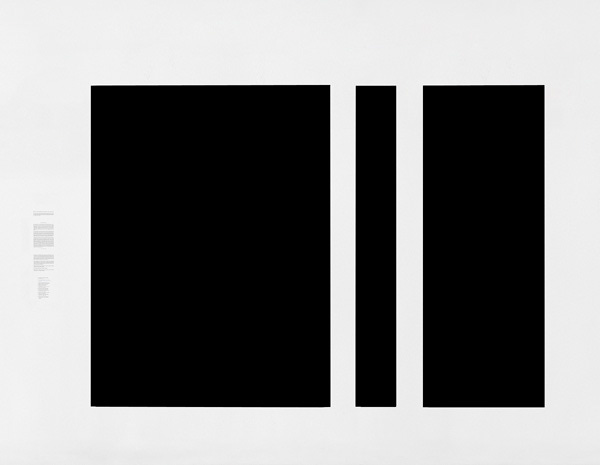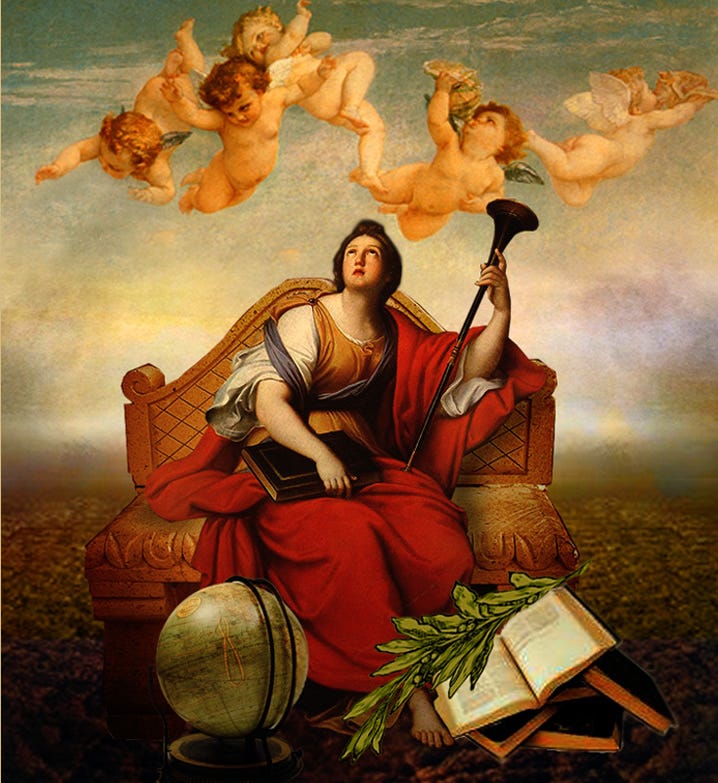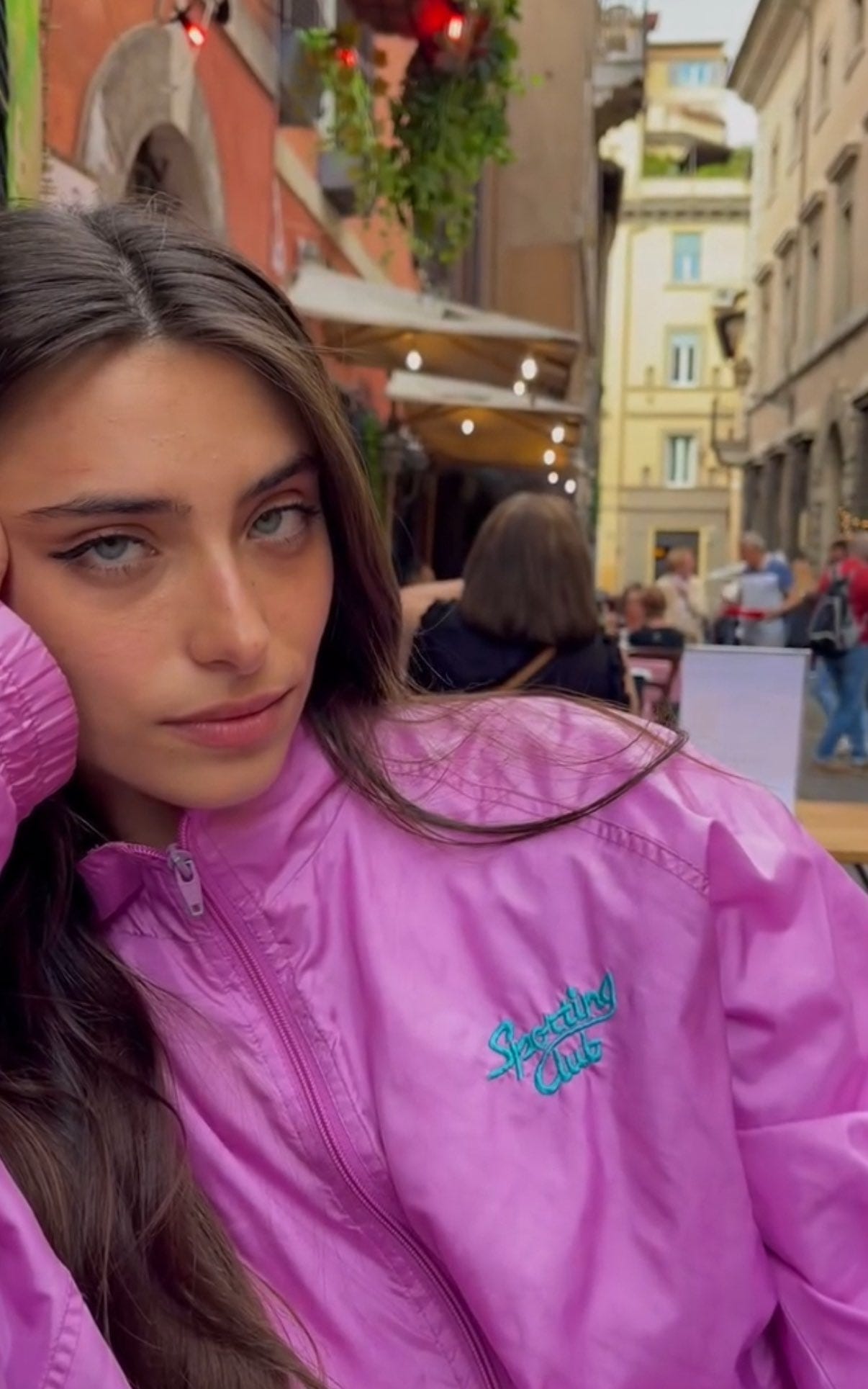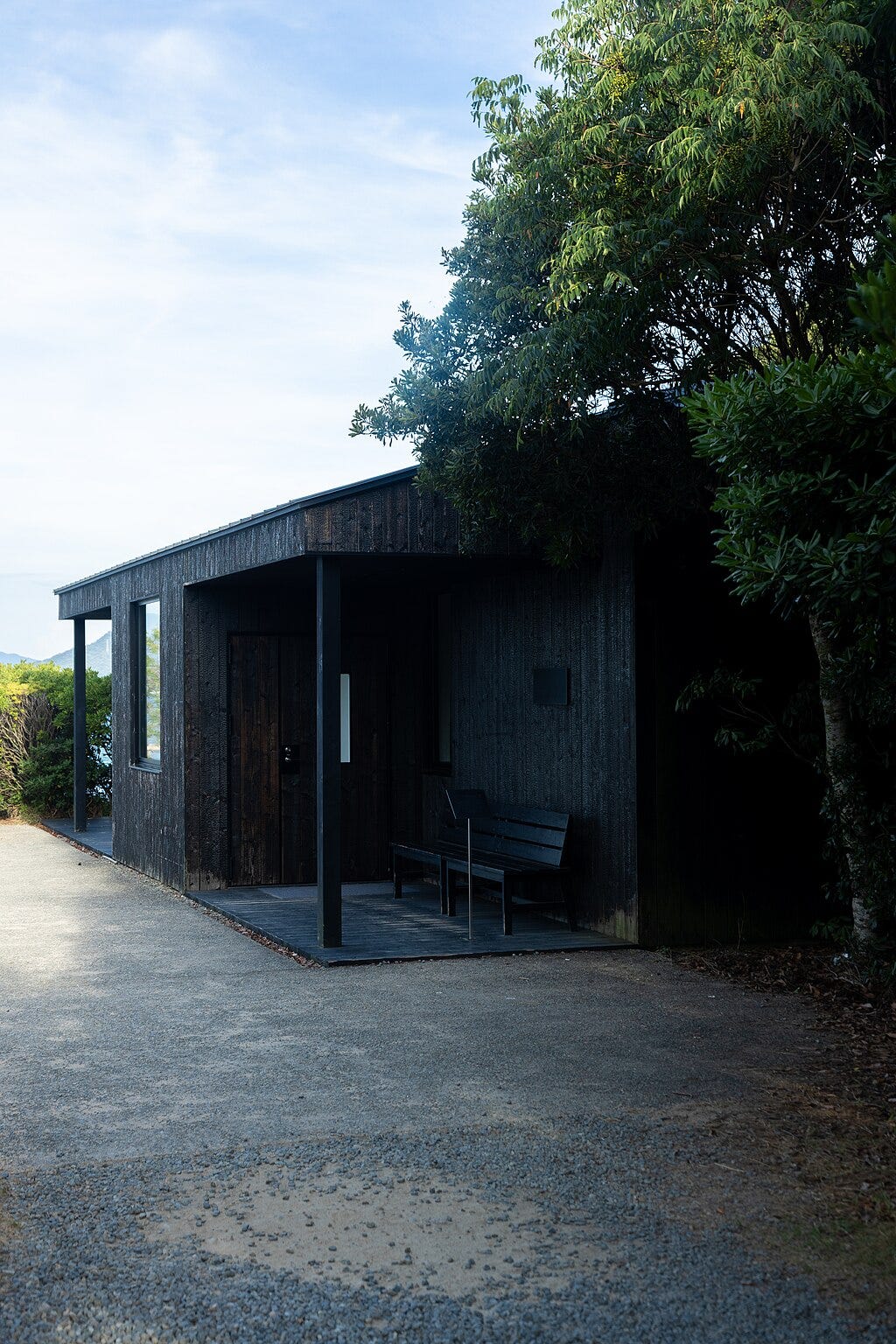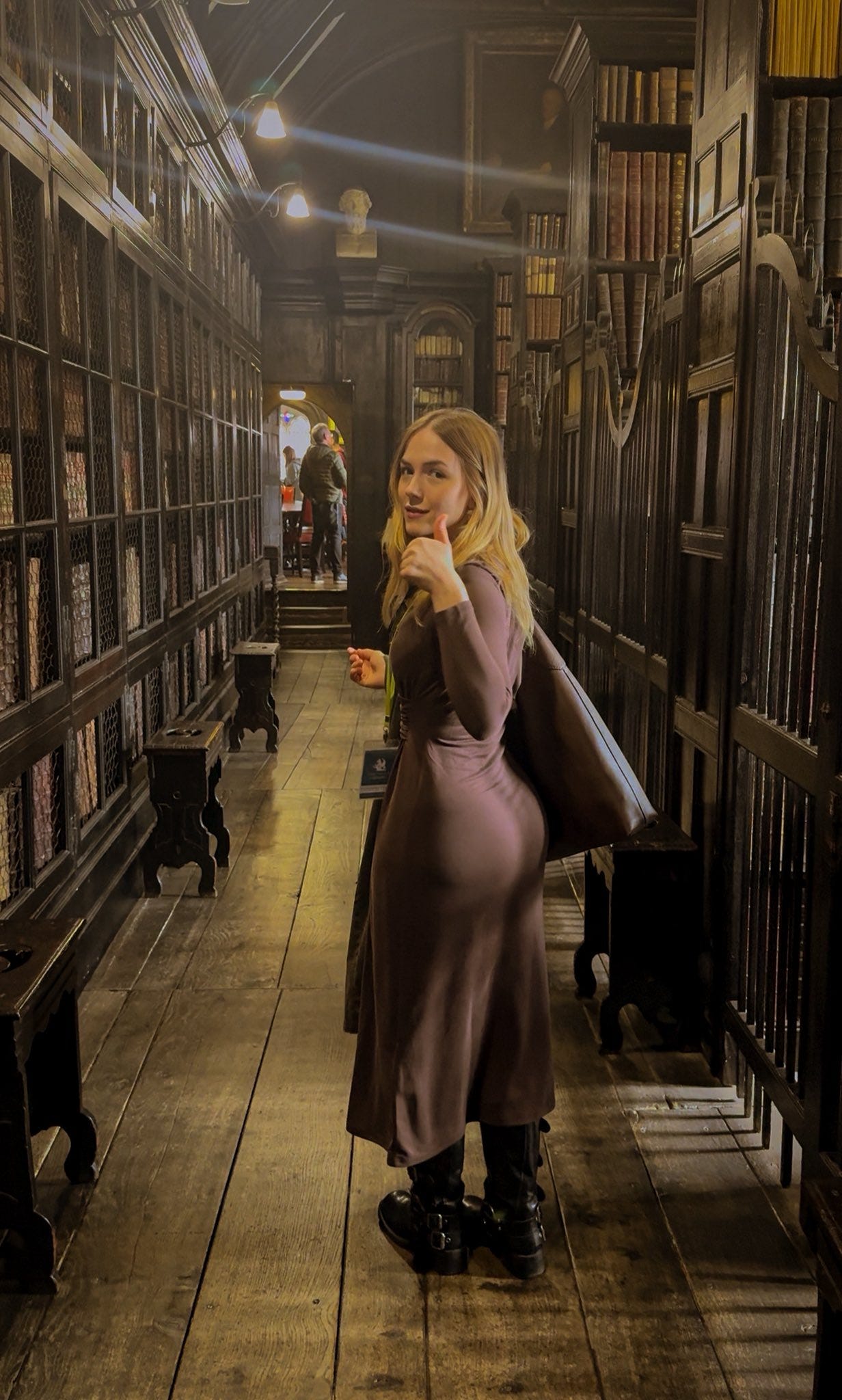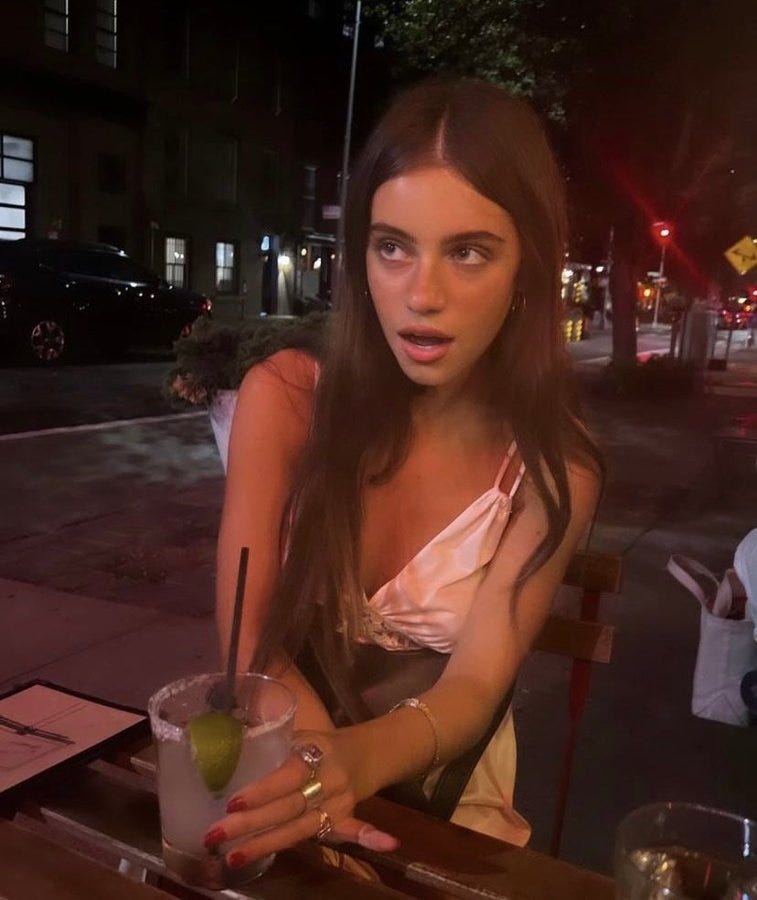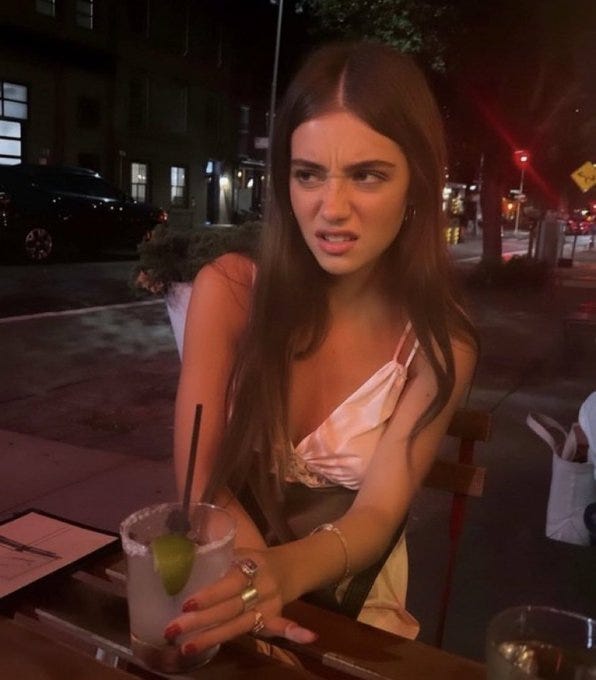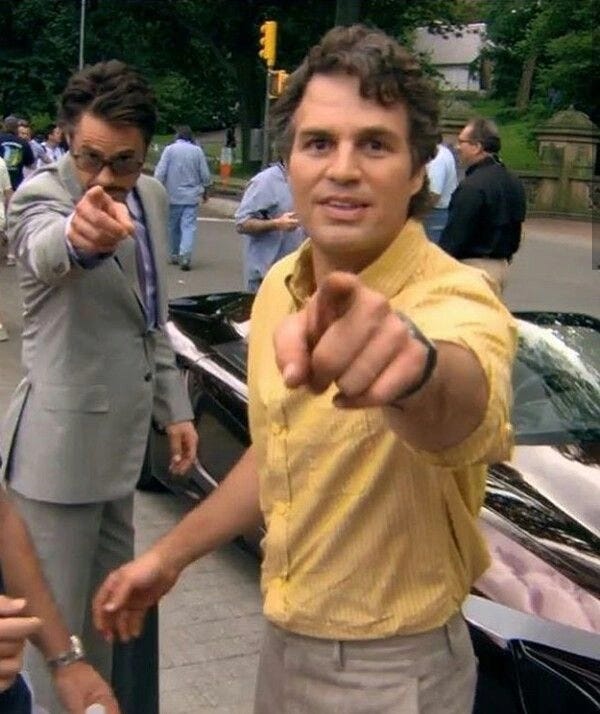HGLA #96 - Play me like a violin
Truth, history and the players that keep it all malleable
Words of ice,
hands like velvet.
Fire.
It’s unmistakable.
Precise.
Reality lands around you,
formed as if it could never happen any other way.
I hear you first,
the sharp click of a metronome heel.
How are they always new?
I look from afar.
From the embers,
from the chaos.
To a world
where nothing looks out of place.
Catalogued gestures.
Pearl studs.
Silk blouse.
But are you real,
or is this part of the act?
I want to see behind,
see the cracks,
the working,
the parts you’ve so elegantly hidden.
No matter how hard I stare,
no matter how much I pick,
I can’t get there.
I stumble in my search,
longing to see if you’re like me,
And you’ve just learned how to hide it better.
But as I seek,
I unravel.
Composure.
If you’re so stable,
maybe I am not.
I want to feel measured,
But I can’t anymore.
Archival scents,
iris and ink.
I’m not sure if it exists,
but I know it’s enough
to never forget.
You linger at the edge of my words,
leaving me
sat in limbo,
seeking validation
deprived of oxygen.
But as I watch,
I learn.
That’s the game you play.
Faint movements
shifting reality around you.
Why?
You could have the spotlight,
instead pulling on the strings of reality.
A gentle hand on the tiller of truth.
What once was crimson
now glows red.
It leans around you,
Time shifting like sand,
in ways I still can’t understand.
Is it the power,
or that you see it differently?
Soft nods directing tomorrow,
are you slowly footnoting
your way through history,
Clock hands moved
with a fishing line?
I feel the tug,
a shifting world.
I look across,
but you lay dormant.
Is it that my world is trivial
and the stage you’re playing on is too big for me to see?
The more I look,
the more I realise
I’m the only one who sees.
Is that why you sometimes stand so far away?
I look to see,
but it’s never about you.
Nothing is.
And the more I look,
the more I realise
I’m no longer playing the game.
The line
has become slack.
The realisation creates tension.
The only way to keep you there
is to keep playing your game.
Clio
I’ve spent the last eight weeks (and likely more) chasing.
Approaching the muses with adoration feels like the simplest way to show respect.
But simplicity rarely goes beyond the surface.
It’s the technical equivalent of a compliment on beauty.
The reality of what they represent when adored is hidden,
much like the idea itself being summarised in feminine form.
If there’s any part of my ideas that has matured,
it’s the belief that they represent something permanent in human nature.
Spiritually, they are primordial forces steering creativity in all its forms.
Scientifically, they are the rounding error in our collective unconscious.
Clio deserves more.
Romanticised or not, she rejects the easy decadence that clings to some of her sisters.
While Erato manipulates emotion with touch and colour, Clio withholds.
She waits.
Because she understands that when one is creating history,
One must steer with a gentle hand.
A whisper in the ear,
a hand on the shoulder.
All happens at the right time, working from the back rooms,
her presence is rarely felt firsthand.
Choosing wisely those she works with.
Clio represents the forces that shape history.
She’s easily misunderstood as an archivist,
But we can easily forget how much control the curator has
It’s easier to think of her as the choreographer.
Rearranging fragments until they hum with meaning.
We live through her private jokes with time.
Where the world sees chaos, she sees sequence.
A patron of memory, and its malleability.
Historically, she’s shown with a scroll, globe and trumpet; now, a laptop and an archive pass.
Her handwriting meticulous. Her laughter rare.
She never shouts; her domain is subtlety.
Instead of telling you what to do,
she shows you what you’ve already done.
Tilting the frame a few degrees to illuminate her perspective.
Clio’s pleasure is quiet power.
Editing the tone of history before it’s happened
A misplaced comma, a photograph refiled,
a whisper to the right person at the right time.
She sits on the shoulders of those who shape the world
If history is written by the victors,
She’s the girl in class who lends them the pen.
Although it’s easy to see her as well-heeled and a little shrewd,
focused only on the work and the way the world should be,
There’s a side she’s learned to hide.
Why would someone who cares so deeply about reality move through the arts?
Perhaps what she really wants is to have some fun.
And this is how she does it.
Control camouflaged as curiosity.
Play disguised as professionalism.
Once you’ve seen her,
You start noticing her work everywhere.
In the stories you hear,
in the way the world remembers,
and in the slow realisation
that she’s already written you in.
Consensus Reality
There’s an idea.
That if you have an advantage in this world, you should keep it quiet.
Maybe it’s that the cash machine on 47th, gives out free money every Tuesday at 2pm
Or that when your partner starts lying, their left eye blinks… just a little.
Sharing counterfactual information that currently benefits you and changes how people navigate reality can actually really suck.
You wouldn’t want a queue at your cash machine every Tuesday.
And it’s going to be much easier to hear that your partner is staying late at work if he’s not wearing an eye patch.
Maybe you don’t like it.
Clearly, the idea’s value depends on how you want to play this little game of life.
But we’re not the only players, and we’re late to the table.
It’s safe to assume everyone else has been playing this way for a while.
Everything truly good is probably hidden from view.
That’s how it works.
The agreed reality that we can all see omits the best parts, out of fear, there isn’t enough to go around.
So how true can “true” be?
It’s the world of science until it isn’t.
When we look for proof in science, we try to break it.
We look for the edges.
Even sight and colour fall apart when you get small.
Go smaller still and gravity stops functioning.
The same happens with truth.
So what of the things we all know?
Here, there is no value.
No alpha to gain an advantage.
At first, this realisation feels like insight, but it’s only a sign we were already behind.
So how does one find alpha in a subjective reality?
Through perspective.
Art doesn’t just offer a way of seeing.
It offers a way of thinking.
A pattern to copy, to unpick reality, to see from a novel position.
A way to notice what others omit.
And within that void of human omission, to discover if something of value exists.
But be warned.
The more one looks into the void,
The more one becomes it.
Poets Corner
Untitled Clio
I have not the time
to give account of time
reflecting upon reaching an end.
Like writing of winter
during a summer. Impossibility.
Sticks to the mind like a simile.
Reaching an end at number nine:
A trinity of a trinity.
Everything to follow to equal itself.
I have not the account
to give time to reflect upon
reaching the next beginning.
Like writing of the morning
in the dead of night. Impossibility.
Sticks to the mind like perpetual time.
To change the order of words
is to order the words of change.
Rewrite the script to read the same.
The props of the past
are sold to the fattest cats
at the theatre’s shop of souvenirs.
To change the position of props
is to position the props of change.
Rearrange the stage to show the same.
To show the same scenes with props
in different order. Mortality stage centre
like a smoking Chekhov’s gun.
- Thomas May
Final words
Well.
That was a heavy series.
Next week we start a new series.
We’re looking at reality, how to train humans, and whether we’re still animals or not.
Starting with Wilderness.
I’m working on the substack a little more while I’m travelling
If you’re enjoying the work so far, send it to a friend
Love you loads
- R x



